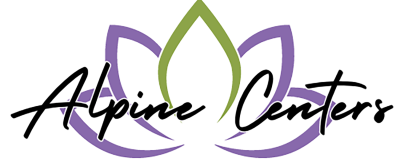Alpine Centers Addiction and Mental Health Healing
Welcome to Alpine Center for Personal Growth & Alpine Medical Services
Medical
Outpatient Detox for Alcohol and Opiates
Mental Health
CBT/DBT In Person and Online
Addiction
Outpatient Group and Individual Therapy
Three Tips to Build an Addiction Recovery Support Network
- May 22, 2018
When you are in recovery from drug or alcohol addiction, you need to have a strong addiction recovery support network. Recovery is a community effort. You cannot do it alone.
Let’s be honest – you used drugs or alcohol to the point that your life became completely unmanageable. You tried time and time again to stop drinking or using drugs, only to be unsuccessful time and time again. Despite your most sincere efforts to stay sober on your own, you found that you simply couldn’t do it. After many failed attempts, you finally reached out and got help for your substance abuse problem.

The need for help doesn’t stop once you get sober. If you couldn’t GET sober on your own, what makes you think you can STAY sober on your own?
It’s important to recognize that maintaining a recovery program requires a daily commitment – it’s an ongoing process. Sobriety is about learning to live life on life’s terms. You will confront many obstacles along the way. To be victorious and stay sober as you navigate these obstacles, you simply MUST have a strong recovery support network to offer you the encouragement and guidance you need to maintain ongoing recovery.
Here are three tips to build an addiction recovery support network:
#1 Be An Active Participant In A 12-Step Recovery Fellowship
There are many 12-Step fellowships available to address just about whatever addiction you may be recovering from. Alcoholics Anonymous, Narcotics Anonymous, Marijuana Anonymous, Heroin Anonymous, and Opiates Anonymous are just a few that come to mind.
The only requirement for membership at these fellowships is a desire to stop drinking or using drugs. By attending regular meetings, you can learn how to live and enjoy a sober lifestyle and develop healthy relationships with other recovering people. It’s not only a great way to establish a strong support system, it’s also a place to learn positive coping skills and engage in social activities.
Don’t just attend the meetings and leave. Stay after and get to know the people who are sincere about working a recovery program. You will forge positive relationships by putting yourself out there and telling the people around you that you need help staying sober. You will be surprised at the results. Before long, you will find that you have a created a strong addiction recovery network you can count on to help you learn how to live your new lifestyle.
#2 Get a Sponsor Who Will Work You Through the 12-Steps
When you work a 12-Step recovery program, you should have a sponsor who will work you through the steps. This is someone you can trust with your thoughts and feelings – someone you can talk to about what is really going on in your life. They are a listening ear, a shoulder to cry on, and a cheerleader who has a sincere intention to help you achieve ongoing recovery.
When someone agrees to be your sponsor, they are taking on the responsibility of being the “go-to person” in your recovery support network. They will understand the important role they play in your life. In becoming your sponsor, they are making a commitment to stick by your side as you learn and grow in your recovery process. Your sponsor will be there for you to offer ongoing support, guidance, encouragement, and inspiration.
#3 Ask Your Family And Friends To Support You In Your Recovery Journey
Your family and friends can provide an excellent recovery support network for you beyond the relationships you create in a 12-step recovery fellowship. Chances are, the people who love you most want to see you succeed in sobriety. They will be there to support you as you learn how to live a life that is not centered around substance abuse.
Be accountable to your family and friends. Tell them you have decided to remain abstinent from drugs and alcohol and that you have made the commitment to work a recovery program. Explain that it would help you tremendously if they would respect your decision by not drinking or doing drugs around you. Ask them to get engaged in your recovery process. You may even want them to go to meetings with you so they can learn more about the 12 Steps and the disease of addiction.
It is important that your family and friends understand that there will be times when you will be triggered to use drugs or drink alcohol. Ask them to be available to you when you confront these situations, whether it’s by answering a late-night phone call or meeting you when you need them to so you don’t get drunk or high.
Seek Out As Many Sources As You Can To Establish a Strong Recovery Network
We have listed three ways you can create a support system for yourself. However; there are many more opportunities available to you for establishing a recovery network. You just have to get out there and find them.
You may go to church or a spiritual center and get involved in activities that will enhance your recovery. You can also volunteer at a charitable organization and explain that you are looking for people you can count on to help you stay sober. You might also seek help at a mental health organization or start seeing a therapist. The possibilities are limitless.
No matter where you go to build your addiction recovery network, be sure to build one. Don’t make the mistake of thinking you can recover alone. Sobriety doesn’t happen in isolation. You have to get out there and create healthy, positive relationships with people who can offer you the support you need to enjoy a life in recovery.
